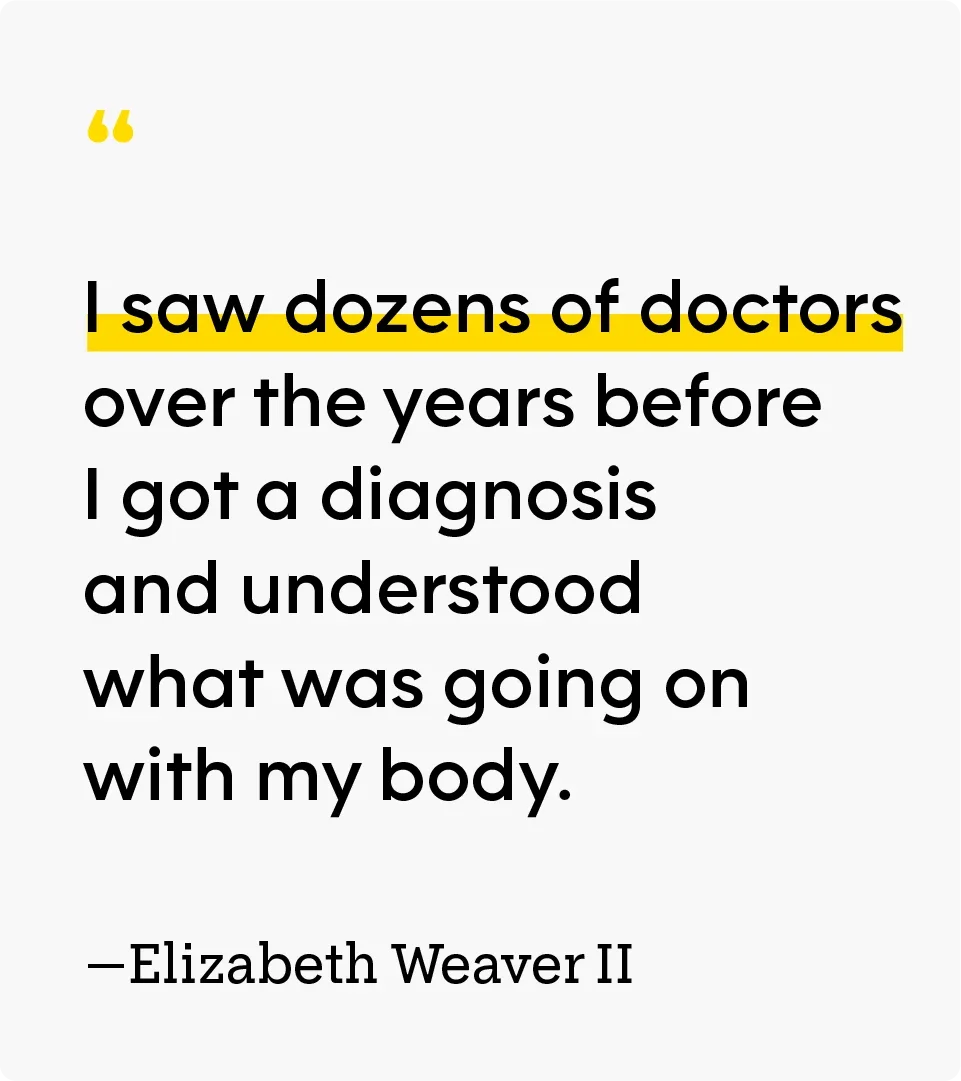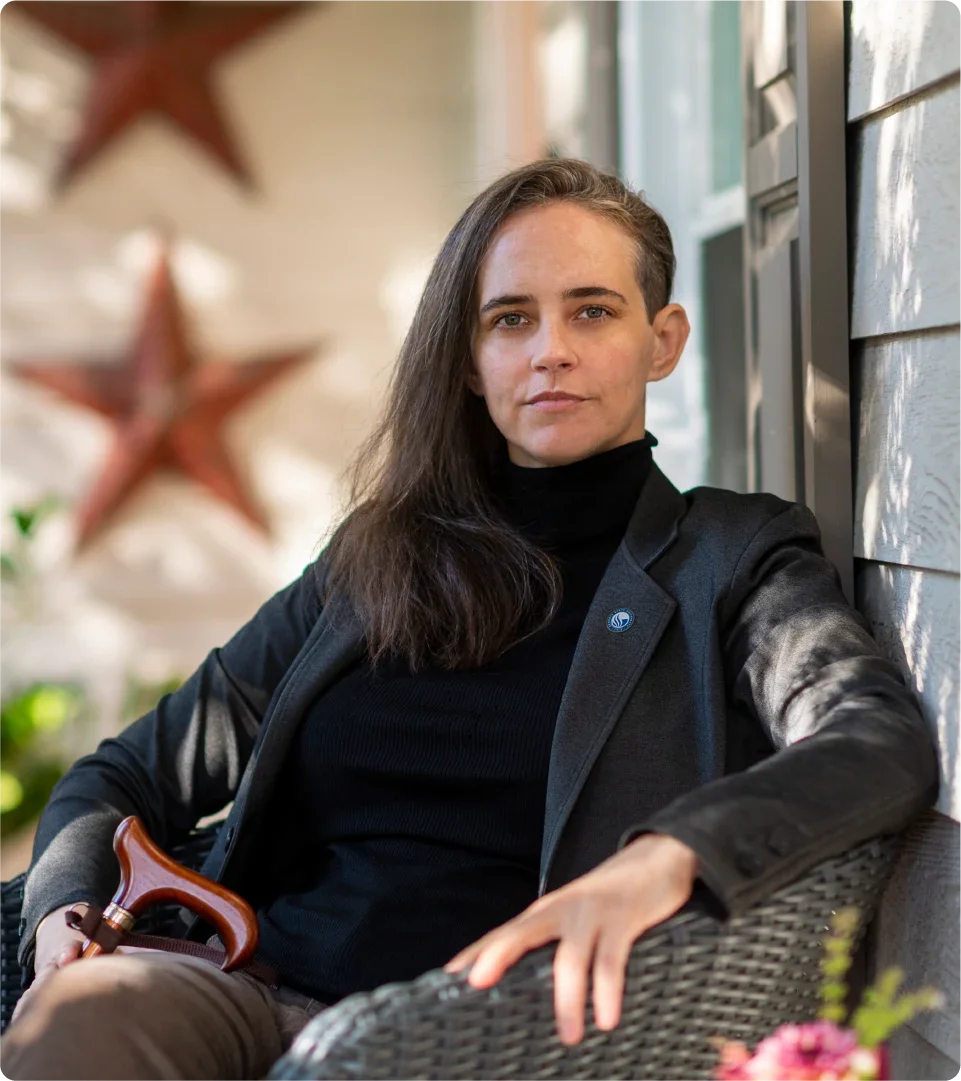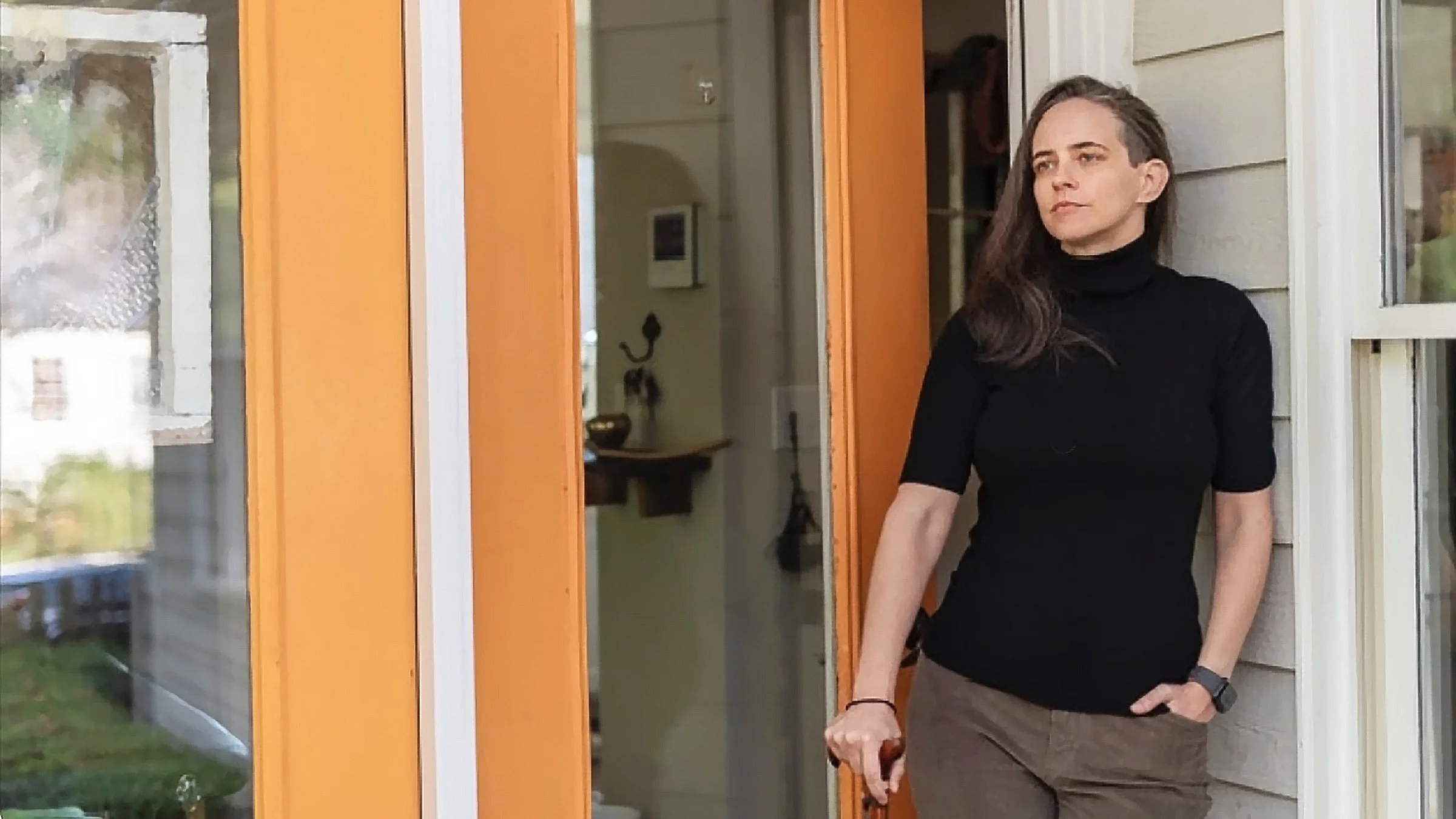Key takeaways:
Elizabeth Weaver II is a neuroscientist who studies people with long COVID.
Elizabeth has chronic fatigue syndrome. She sees parallels between her condition and long COVID.
Both are misunderstood conditions that are hard to treat and neglected by science, she says.
Long COVID is the term used to describe a range of symptoms some people develop weeks, or even months, after their initial COVID-19 infection.
These lingering symptoms can include fatigue, dizziness, trouble breathing, headaches, brain fog, and more. And they can severely affect a person’s quality of life.
Researchers are still trying to figure out why some people get long COVID. Elizabeth Weaver II, a neuroscientist and the associate director of the Brains & Behavior program at Georgia State University, has spent the last two years interviewing, writing about, and advocating for people with long COVID. She says her aim is to both better understand the condition and to increase health equity for people with long-term illness or complications following an infection.
During her research, she has found that people with long COVID come from all walks of life. She has studied how the condition’s disabling effects impact their daily lives and what triggers their symptoms.
“Whether they were scientists, medical professionals, or not, they had an expertise about their own bodies and what they were feeling,” Elizabeth says. “Bringing that to the table was powerful in trying to figure out what was going on.”
Similarities between long COVID and other post-viral syndromes
Elizabeth collaborated on the research with Ryan Prior, a friend and CNN journalist who was writing a book on long COVID. Together, they’ve drawn parallels between the condition and other post-viral syndromes that are hard to treat and neglected by science.
Long before anyone had heard of long COVID, Elizabeth experienced the consequences of getting a viral infection that turned into a long-term disability. The bizarre range of symptoms some people experience after they recover from their initial COVID infection are eerily familiar to her.
The symptoms of Elizabeth’s condition began in 2010, at age 30.
“I was a very athletic person who spent a lot of time outdoors exercising,” she says.
Over time, fatigue began to limit her ability to exercise for as long or as vigorously as she always had. One day, after a long walk with a friend, she collapsed when she returned home and had to be hospitalized. Eventually, the fatigue was so severe it prevented her from exercising completely. Today, she walks with a cane.
Besides fatigue, she had other symptoms that severely disrupted her life — dizziness, muscle twitching, nausea, and brain fog, to name a few.
“I saw dozens of doctors over the years before I got a diagnosis and understood what was going on with my body,” Elizabeth says. That diagnosis was myalgic encephalomyelitis (ME), commonly known as chronic fatigue syndrome (CFS). It’s a long-term condition that affects many systems in the body and results in debilitating fatigue.


Because the range of seemingly unrelated medical issues associated with long COVID are so similar to those of ME/CFS, Elizabeth says some have dubbed long COVID an old disease with a new name.
Triggers remain a medical mystery
Much, if not most, of what triggers long COVID symptoms remains a medical mystery. So many of the issues that patients report — such as micro blood clots, muscle weakness and twitching, and vertigo — involve multiple systems in the body.
These symptoms are treated individually, meaning there’s no magic bullet that addresses them all, Elizabeth says. And the most useful information about the condition comes from the people who advocate for themselves to get the care they need, she adds.
“I’ve seen so many people go through this psychological process of wrapping their mind around the idea that they wake up every morning and they’re not better. In fact, they might be worse,” she says. “It’s just such a hard thing for our brains to rationalize.”
What can scientists learn directly from patients?
Elizabeth sees parallels between her experience and what people with long COVID are going through now.
Through her research, she’s realized how much people could benefit from a patient-led approach to healthcare. She’s seen how patients are leading the charge when it comes to understanding long COVID and other post-infectious diseases.
“Patients are organizing themselves in ways that are faster and more efficient than ever before,” she says. “Patient experience is an expertise we didn’t give a lot of weight to before.”
Now, she says, the healthcare industry is beginning to listen.

Why trust our experts?

















